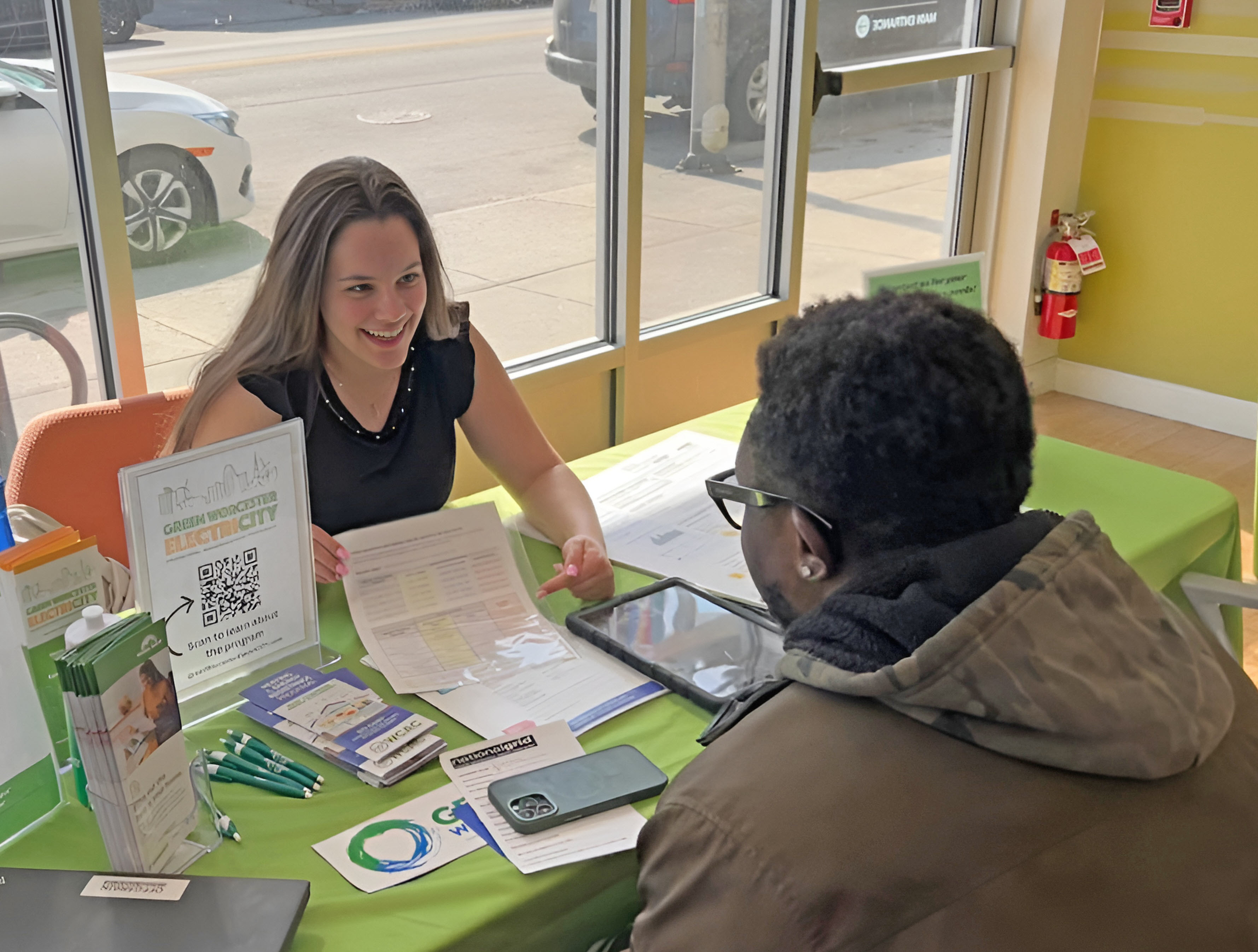Energy bills can be a significant burden for some Massachusetts families and small businesses, disproportionately affecting residents of Environmental Justice Communities. Energy efficiency solutions can reduce energy bills, improve indoor air quality, and create a more comfortable home or business.
The Community First Partnership leverages local knowledge and trusted relationships of municipalities and community-based organizations to increase participation in Mass Save energy efficiency programs. This initiative seeks to target renters, landlords, income-eligible households, language-isolated households, and small businesses in participating communities to ensure the benefits of energy efficiency are more equitably distributed, particularly among those who have been historically underserved.

The Sponsors of Mass Save provide funding, resources, training, and support to participating municipalities and local community-based organizations to increase participation in the Mass Save programs. This includes funding and support to hire an Energy Advocate and implement outreach campaigns in their community.
The Sponsors of Mass Save are pleased to announce the 2025-2027 cohort of Community First Partners. 58 municipalities and community-based organizations will work with their local Mass Save Sponsor to provide energy efficiency solutions to residents and small businesses to reduce energy use and increase the comfort of homes and building
The 2025-2027 Community First Partners are:
| Community | Organization |
| Acton | Municipality |
| Amesbury | Mass Energize |
| Andover | Municipality |
| Arlington | Municipality |
| Attleboro | Clean Water Fund |
| Aquinnah | Vineyard Power |
| Beverly | Municipality |
| Billerica | Municipality |
| Boston | Municipality |
| Boston | Boston Climate Action Network |
| Brockton | Cape Verdean Association of Brockton |
| Brookline | Municipality |
| Cambridge | Municipality |
| Chelmsford | Municipality |
| Chelsea | Municipality |
| Chilmark | Vineyard Power |
| Easthampton | Municipality |
| Edgartown | Vineyard Power |
| Everett | Municipality |
| Fall River | Municipality |
| Framingham | Municipality |
| Gloucester | Municipality |
| Lawrence | Municipality |
| Leominster | Municipality |
| Lexington | Municipality |
| Lowell | Municipality |
| Lynn | Municipality |
| Malden | Municipality |
| Medford | Municipality |
| Melrose | Municipality |
| Methuen | Municipality |
| Nantucket | Municipality |
| Natick | Municipality |
| New Bedford | Municipality |
| Newburyport | Mass Energize |
| Newton | Green Newton |
| Northampton | Municipality |
| Norwood | Municipality |
| Oak Bluffs | Vineyard Power |
| Pittsfield | Berkshire Regional Planning Commission |
| Plymouth | Municipality |
| Quincy | Quincy Asian Resources, Inc |
| Randolph | Quincy Asian Resources, Inc |
| Revere | Municipality |
| Salem | Municipality |
| Sharon | Municipality |
| Somerville | Municipality |
| Southbridge | Municipality |
| Springfield | Arise for Social Justice |
| Swampscott | Municipality |
| Taunton | Clean Water Fund |
| Tisbury | Vineyard Power |
| Watertown | Municipality |
| West Tisbury | Vineyard Power |
| Westborough | Municipality |
| Westhampton | Municipality |
| Winthrop | Municipality |
| Woburn | Municipality |
| Worcester | Municipality |
The 2025-2027 Community First Partners may receive:
Up to $85,500 per year to support an Energy Advocate* and local marketing efforts
- Comprehensive training on energy efficiency and electrification
- Support from energy efficiency and electrification experts
- Co-branded multilingual marketing materials
- Coaching and best practices to encourage program participation
*Energy Advocate may be full-time or part-time and the award amount will be adjusted accordingly.

